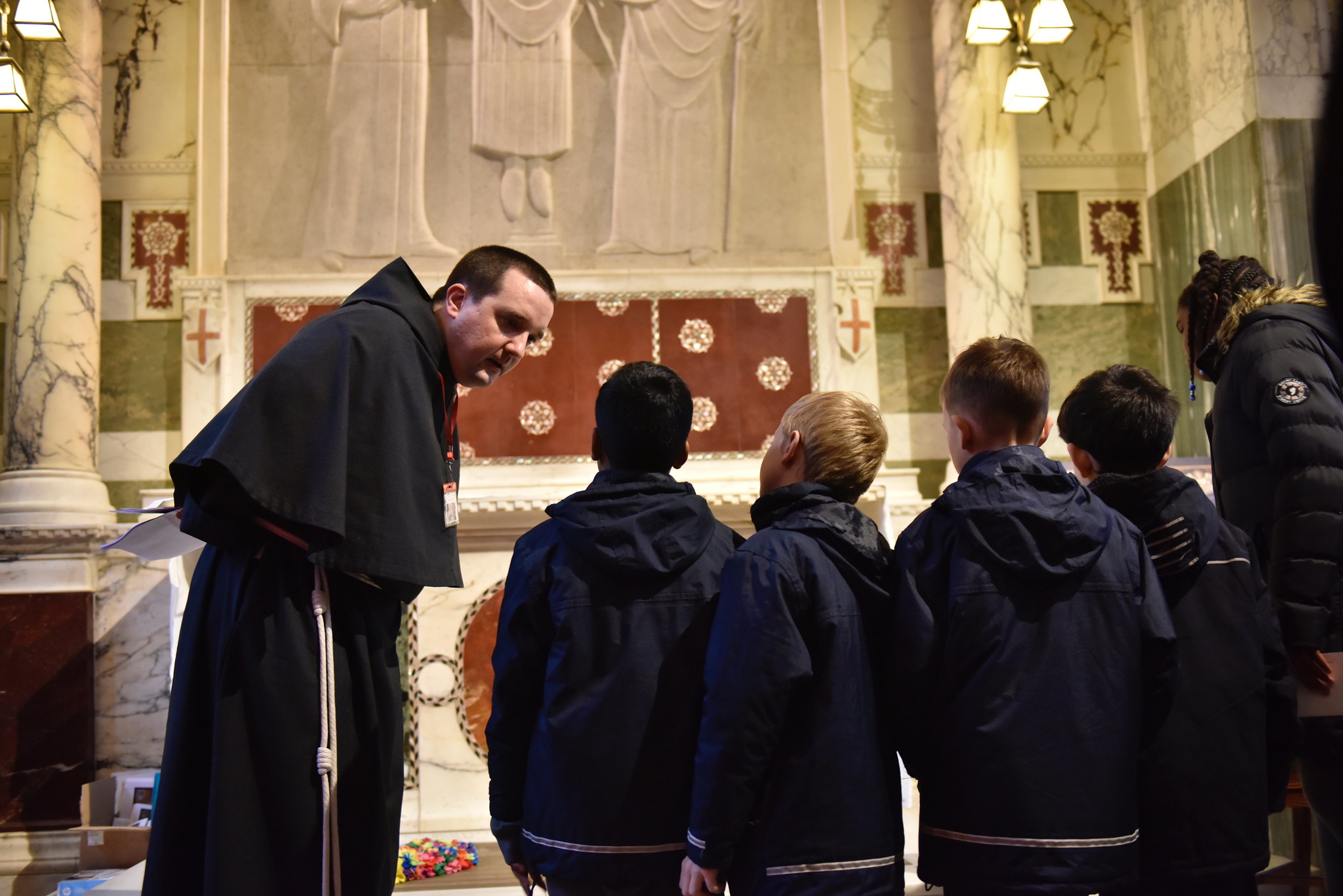Chaplaincy Guidance and Support Materials for Primary Schools
Click Here for Chaplaincy Resources
National Standards for Chaplains working in schools and academies are divided into five key areas:
- The Chaplain as witness
- The Chaplain as pastor
- The Chaplain as leader
- The Chaplain as educator
- The Chaplain as professional

Witness
The Chaplain should:
- be a practising Catholic in full communion with the Church;
- set a good example to all members of the school community in terms of living a Christian life by:
- being a person who prays and makes prayer an important feature of decision making and who intercedes on behalf of the community they serve;
- speaking of their own faith and relationship with Christ;
- living a life which exemplifies Gospel values;
- treating all members of the community with dignity, building relationships rooted in mutual respect, and at all times observing proper boundaries appropriate to the chaplain’s professional position;
- showing tolerance of and respect for the rights of others;
- demonstrating a commitment to Catholic Moral and Social Teaching.
Pastor
The Chaplain should:
- be attentive to the needs of all members of the school community
- support other staff in school who share the responsibility of the pastoral care of pupils, including the Head Teacher;
- accompany the whole community in their highs and lows, celebrating with them in their joys and consoling them in their sorrows;
- be able to relate to a wide range of individuals and establish levels of trust where problems can be shared;
- focus on the marginalized and the vulnerable within the school community as their special care.
Leader
The Chaplain should:
- have a good understanding of the liturgical life of the Church and be able to lead pupils and staff into a fuller appreciation of its richness and beauty;
- know how to prepare a space for prayer;
- have the skills of a well-trained sacristan and know how to both prepare a space for the celebration of Mass;
- care for any sacred space in school, especially where the Blessed Sacrament is reserved;
- be skilled in engaging children and young people in prayer, worship and the sacramental life of the Church, particularly the Eucharist and the sacrament of reconciliation, where appropriate;
- support class and whole school based worship through the provision and creation of appropriate worship resources;
- help pupils and staff to develop confidence in leading prayer and worship independently;
- provide opportunities for staff and pupils to deepen their spiritual life, for example, through the organizing of retreats and days of reflection.
Educator
The Chaplain should:
- have a good knowledge and understanding of the Catholic faith to:
- support school catechetical programmes (where they exist);
- support the formal and informal learning that takes place across school life;
- ensure that structured time with pupils is well-planned, delivered and evaluated;
- support the professional development of staff in terms of the Catholic life of the school.
Professional
The Chaplain should:
- if a priest, celebrate Mass and the sacrament of reconciliation regularly in school;
- if not a priest, make arrangements for the regular celebration of Mass and the sacrament of reconciliation within school with the priest(s) of the local parish or deanery;
- form good working relationships with the nearby priest(s) and parishes and facilitate partnership working between parish/deanery/diocese and school.
- maintain good working relationships with other members of staff, governors/directors and school leaders;
- observe professional standards in terms of appearance, punctuality and full participation in the working life of the school;
- have regular performance appraisal;
- have regard for the need to safeguard pupils’ well-being, in accordance with statutory provisions;
- Contribute to self-evaluation processes in readiness for inspection.
Chaplaincy Documents
Available to download below is a series of documents for Schools Chaplains. These include the CES national standards as well as chaplaincy job descriptions for both primary and secondary phases.
CES National Standards for School Chaplains
CES School Chaplain Job Description Secondary
CES School Chaplain Job Description Primary